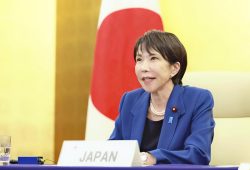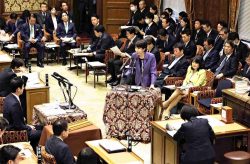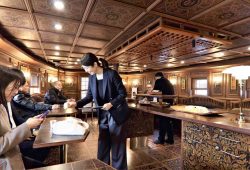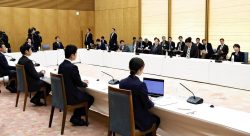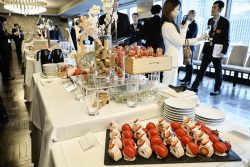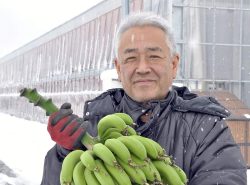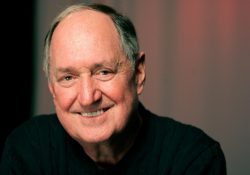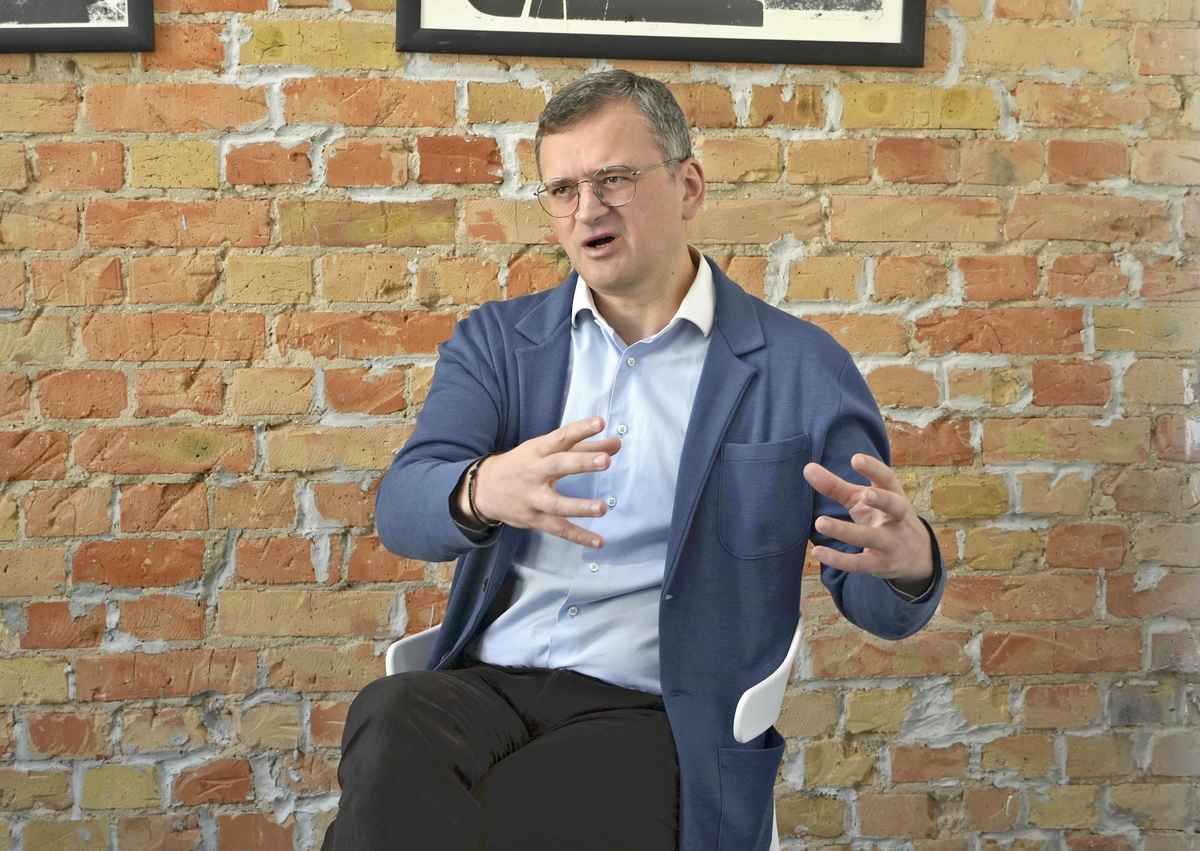
Former Ukrainian Foreign Minister Dmytro Kuleba speaks during an interview with The Yomiuri Shimbun in Kyiv on Dec. 13.
14:03 JST, December 22, 2024
KYIV — Former Ukrainian Foreign Minister Dmytro Kuleba has expressed concern that Ukraine’s membership in NATO could be used as “a part of the deal” to end Russia’s aggression, as U.S. President-elect Donald Trump seeks to end the war through negotiations with Russia.
Kyiv believes NATO membership is the best way to prevent Russian aggression after a ceasefire. Trump, though, is said to oppose Ukraine’s joining NATO anytime soon, as he hopes to bring Russia, which is opposed to Ukraine’s membership, to the negotiating table.
“Some decision-makers see Ukraine’s membership in NATO as a bargaining chip with [Russian President Vladimir] Putin,” Kuleba said during an interview with The Yomiuri Shimbun on Dec. 13, warning against Trump’s approach to negotiations.
Kuleba, 43, served as foreign minister from before Russia invaded until September this year and formulated the basic policy for diplomacy aimed at peace negotiations.
“If President Trump comes to a conclusion that NATO membership is the only viable way of not only ending the war but also preventing the new war, as it is the case, he will change his position,” he said.
Kuleba stressed the importance of continuing to work with Trump because “he is very rational in everything he does, and he wants a result.”
‘No better instrument’
Kuleba, who has been appealing to the international community for support for 2½ years, since Russia invaded Ukraine, reiterated his view that Ukraine’s membership in NATO is an indispensable condition for ending the war.
During the interview, Kuleba repeatedly referred to the NATO issue, and said, “There is no better instrument to prevent the next war than having Ukraine in NATO.”
Ukraine and the United States are of different minds on the membership issue, and Trump has indicated he wants to end the war quickly.
Trump told Ukrainian President Volodymyr Zelenskyy and French President Emmanuel Macron that he does not support Ukrainian membership in NATO at a meeting in Paris on Dec. 7, according to The Wall Street Journal.
Kuleba’s stress on Ukraine’s uncompromising stance on NATO membership was likely a sign of concern that negotiations might proceed at Trump’s pace.
As a substitute for Ukraine joining NATO, there is a plan for European countries to possibly deploy peacekeeping forces in Ukraine after a ceasefire.
After the three-way meeting on Dec. 7, Zelenskyy spoke positively about the “possible presence of some kind of international forces to ensure security until Ukraine joins NATO.”
Kuleba, however, questioned whether this would be an effective deterrent against Russia. “You have troops, foreign troops on the ground, therefore he [Putin] will not be shooting. No, no, no, he will be testing these troops. He will be testing the preparedness of Western nations to confront him directly,” he said.
Kuleba added that having met with Chinese Foreign Minister Wang Yi, he thought China had a strong desire to act as a “broker of peace.”
China is the one player that could make or break the peace talks.
Reflecting on his visit to China to meet with Wang in July, the first such meeting since Russia invaded, Kuleba said, “I left this meeting with a clear understanding that China wants this war to end, but it wants to be the one who answers this war, who facilitates the end to this war.”
Kuleba said Beijing “is working really hard on creating this image of China as the broker of peace” but does not want the war to end in a way that would “critically weaken Putin’s regime.”
He also said China also wants to avoid the United States holding “the monopoly on ending the war because it will put them in a very strong position globally.”
Given the hegemonic struggle between the United States and China, Kuleba expressed some pessimism. “I’m saying that nothing speaks in favor — nothing so far — speaks in favor of China and the United States collaborating on this matter,” he said.
He also mentioned Japan, saying, “Japan has played a very important role in this war, and we appreciate it.” He expressed his hope that Japan would further relax its restrictions on arms exports so that it can directly provide Ukraine with surface-to-air guided missiles such as the Patriot missile.
“The world today is very different from the post-Second World War world, and the policies that were introduced back then, they served their purpose,” he said. “So it’s time to reconsider these policies and adapt them to the threats of today.”

Dmytro Kuleba
Born in Sumy, then part of the Soviet Union, in 1981. He graduated from a university in Ukraine in 2003 and joined the Foreign Affairs Ministry. After being deputy prime minister for European and Euro-Atlantic Integration of Ukraine, he served as minister for Foreign Affairs from March 2020 to September 2024. He is now a non-resident senior fellow at the Harvard Kennedy School.
Top Articles in World
-

Israeli Ambassador to Japan Speaks about Japan’s Role in the Reconstruction of Gaza
-

Videos Plagiarized, Reposted with False Subtitles Claiming ‘Ryukyu Belongs to China’; Anti-China False Information Also Posted in Japan
-

Nepal Bus Crash Kills 19 People, Injures 25 Including One Japanese National
-

Russia: Visa Required for Visiting Graves in Northern Territories, Lifting of Sanctions Also Necessary
-

China, India Tapping into Promising African Market; Beijing Announces Tariff Cuts, Both Countries Aim to Expand Exports
JN ACCESS RANKING
-

Producer Behind Pop Group XG Arrested for Cocaine Possession
-

Japan PM Takaichi’s Cabinet Resigns en Masse
-

Man Infected with Measles Reportedly Dined at Restaurant in Tokyo Station
-

Israeli Ambassador to Japan Speaks about Japan’s Role in the Reconstruction of Gaza
-

Videos Plagiarized, Reposted with False Subtitles Claiming ‘Ryukyu Belongs to China’; Anti-China False Information Also Posted in Japan


